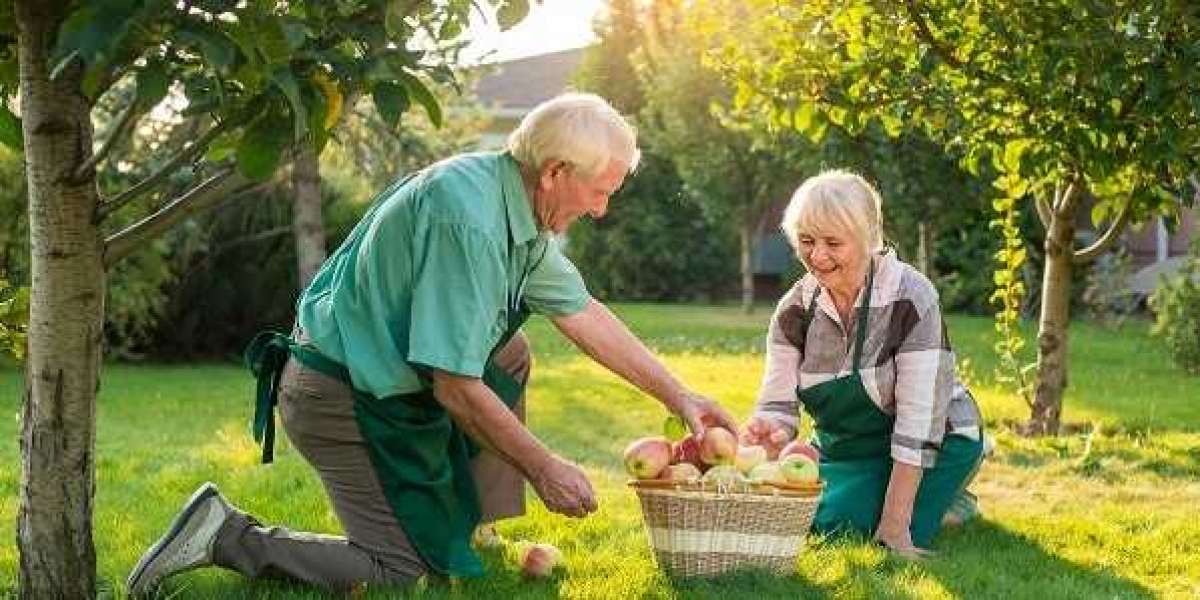As the seasons change and nature begins to bloom, the nicer weather encourages us to spend more time outside. In the spring and summer, cultivating a garden is a wonderful pastime for seniors to participate in. It's entertaining, it has a purpose, and it even has several health advantages. Learn more about the benefits of gardening for seniors, as well as how to cultivate your own garden in a safe environment.
Gardening is beneficial to senior health in five ways.
1. GARDENING HELPS TO REDUCE STRESS
Studies have discovered that gardening can lower cortisol levels, which can help to alleviate stress and even lower high blood pressure in some people. In one research, participants were forced to complete a stressful activity before being invited to either garden or read for 30 minutes thereafter. Both groups had a decrease in stress levels, however the group that gardened experienced a higher decrease in cortisol than the group that read books. The gardening group also demonstrated a happy mood, but the reading group experienced a significant deterioration in their disposition.
Apart from that, being in the sunshine and creating a lovely area to rest and unwind would bring about calm and a reduction in anxiety levels.
2. GARDENING RAISES SEROTONIN LEVELS.
Serotonin is a neurotransmitter produced by the brain that improves mood and induces emotions of relaxation and peace in the individual. Some research has even shown a correlation between gardening and a decrease in the symptoms of depression. One study discovered that coming into contact with a certain bacterium in soil causes the release of serotonin in the brain, which acts as a natural anti-depressant in some people. This may explain why "horticulture therapy" is becoming a more popular kind of treatment for those suffering from depression and other mental illnesses, with promising outcomes.
The practice of gardening improves heart health and lowers the risk of heart attack.
Gardening is a fairly intensive kind of exercise that may be counted toward the 30 minutes of activity suggested by experts each day. For those over the age of 60, according to a research conducted in Stockholm, frequent gardening can cut their risk of heart attack and stroke by as much as 30 percent. Additionally, spending time outside in a sunny garden can help to raise vitamin D levels, which has been found to lower the risk of developing cardiovascular disease.
MOBILITY IS INNOVATED BY GARDENING
Gardening, in addition to being a fantastic source of physical activity, may help to improve mobility and strength. Gardening has been demonstrated to be a useful technique of regaining strength and mobility after a stroke by using muscles that are not normally used in everyday activities.
5. GARDENING MAY BE HEALTHY FOR THE BRAIN
While no one understands what causes Alzheimer's disease or how to avoid it, research has indicated that making positive choices in one's life might reduce one's chances of having the condition. The practice of gardening is one such lifestyle choice that has been shown to lower the risk of Alzheimer's disease and other kinds of dementia. Growing plants can improve vital abilities like as dexterity, problem-solving, endurance, and sensory awareness, according to research. Gardening can lessen the risk of dementia by as much as 36%, according to research.
GARDENING SUGGESTIONS FOR SENIORS THAT ARE SAFE
One of the most appealing aspects of gardening for seniors is that it is adjustable and can be tailored to fit the needs of people with a variety of abilities. There is a risk of falls, overheating, and wandering while seniors are gardening, but there are actions caregivers can take to keep their senior loved ones safe while still receiving the advantages of gardening.
1. Plant potted plants or construct raised beds.
Using potted plants or raised beds to help minimize back pain and dizziness might help you feel more in control. For seniors, it is much simpler to walk freely since these plants and raised beds are off the ground, frequently at waist level, reducing the danger of muscular strain and falling.
Change out traditional gardening tools with lighter-weight alternatives such as buckets and rakes.
After a while, gardening equipment and buckets can become cumbersome to carry about. Change them out for goods that are lower in weight to reduce the physical strain of gardening.
PRESERVE THE SKIN OF YOUR LOVED ONE FROM THE SUN.
To protect yourself or your loved one from the sun's rays, avoid going into the garden during the warmest part of the day, use sunscreen, and bring an umbrella with you. Bring a water bottle and drink enough of fluids to avoid dehydration in the summer heat.
4. Make seating readily available at all times.
Make a place for yourself to sit in your garden. Not only will this make your garden more appealing, but it will also provide a spot for the gardener to rest and relax while working in the gardens. It might also be beneficial if your loved one is experiencing dizziness or being hot.
5) CONSTRUCT A SECURE GARDEN FOR SENIORS WITH DEMENTIA.
You should establish a safe atmosphere for a senior with dementia if you are concerned about them straying while you are gardening. Consider making it a group activity in which everyone contributes to the creation of a beautiful setting.



